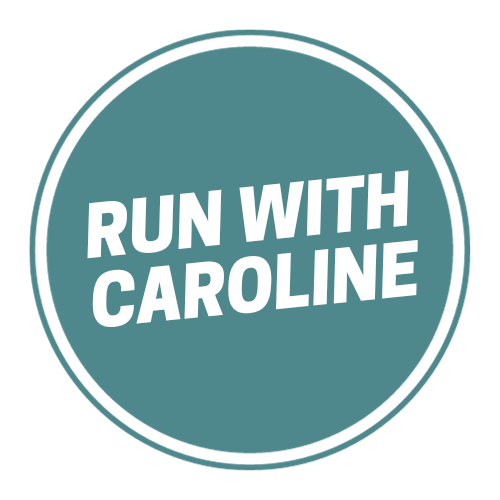Many runners go on to train for a 10k once they have mastered the 5k distance.
It’s one of the most popular races out there. But what is the average 10k time?
You may be wondering this if you’re thinking about running your first 10k or preparing to run a faster 10k.
According to a 2015 study, 10k races are consistently found to be among the most popular running distances, even greater than half marathons and marathons.
Two of the three largest road races in the United States are 10k races. This distance is also a popular Olympic track and field sport.
It goes without saying that many factors affect how fast you will run a 10k.
These include your age, gender, fitness levels and running experience. Even things like the weather and how you feel on the day of your race can affect your time!
In this guide we’ll explore:
- How many miles is a 10k?
- What is a good 10k time?
- What is the world record 10k time?
- Average 10k times by age and gender
- 8 tips to train for a 10k
Ready?
Let’s go!

How many miles is a 10k?
A 10k in miles is 6.2 miles.
This is exactly double the distance of a 5k which is 3.1 miles.
Related: The ultimate beginner 10k training plan
What is a good 10k time?
Your 10k time will depend on your age, gender, fitness levels and running experience.
A good 10k time is 49:43. This is based on the average 10k time across all ages, genders and running abilities worldwide.
Related: How many miles is a 10k?
What is the world record 10k time?
The current world record 10k time is 26:11:00 and is this held by Ugandan athlete Joshua Cheptegei, who also holds the world record 5k time.
The female world record 10k time is 29:01:03 and this is held by Ethiopian athlete Letesenbet Gidey, who also holds the female world record 5k time.
Related: The ultimate intermediate 10k training plan

Average 10k times by age and gender
Here are the average 10k times based on age and gender to help you predict how fast you will run a 10k.
These times should be treated as a guideline only.
If you’re already running faster than the average time for your race – this is fantastic! If you’re running slower, don’t feel too disheartened. You have plenty of time to train!
Here are average 10k run times broken down by age and gender.
| Age | Male | Female |
| 0-15 | 57:08 | 1:03:14 |
| 16-19 | 46:36 | 1:00:21 |
| 20-24 | 51:40 | 59:50 |
| 25-29 | 53:31 | 1:02:25 |
| 30-34 | 54:21 | 1:02:31 |
| 35-39 | 54:27 | 1:02:19 |
| 40-44 | 53:31 | 1:02:37 |
| 45-49 | 55:35 | 1:03:27 |
| 50-54 | 56:12 | 1:04:04 |
| 55-59 | 59:00 | 1:07:41 |
| 60-64 | 58:48 | 1:09:51 |
| 65-69 | 1:03:02 | 1:18:57 |

8 tips to train for a 10k
Now you know your average 10k time based on your age and gender, you will want to start training!
#1 Follow a training plan
Whether it’s going to be your first 10k or seventh 10k, a good race starts with a good training plan. It’s all in the preparation!
It’s important you invest some time into a well-rounded training plan.
A good 10k training plan will include endurance running, speed training and strength training, as well as a decent amount of rest days.
Check out our intermediate 10k training plan – this is perfect for anyone who has a few 10k races already under their belt and who is looking to run a faster 10k.
If this will be your first 10k, then there are some great 5k to 10k apps on the market that will guide you through the process.
These are all free to use and are aimed at anyone who can already run a 5k and looking to run their first 10k.
#2 Speed train
Speed training is an integral part of being able to run a faster 10k.
You will need to get your body used to running and sustaining a faster pace.
Tempo running, interval training and hill workouts are all great ways to help you run a faster 10k.
Aim to include at least two speed training sessions in your training plan each week.
#3 Progress steadily
If you’re looking to beat your average 10k time and perhaps achieve your next PB, then you may be wondering how to run a faster 10k.
Being able to improve your race times is all about consistency, progress and practice.
Anyone is capable of running a faster 10k if you apply your body and mind in the right way.
Avoid sudden leaps in mileage and make sure you pick a training plan that meets your goals and fits in with your lifestyle.
#4 Don’t forget about the long run
It’s easy to forget about endurance training when training for distances like the 5k and 10k.
Running a 10k is not just like running a longer version of a 5k.
It’s an entirely different run and involves a different type of fitness training. You will need to teach your body new endurance running skills.
You will still need to be including some long runs in your training plan in order to improve your endurance, stamina and speed.
Aim to include one long run in your training plan each week, normally done on at the weekend.
Long runs in a 10k training plan are typically between 3 to 8 miles.
#5 Rest and recover
Rest and recovery days are integral to any training plan as they help your body to recover and repair itself after each run, and help to ward off common running injuries.
Take your rest days seriously and don’t be tempted to skip them or run through them.
#6 Stretch
Stretching is essential to any injury prevention strategy. It helps to relieve stiffness and soreness after a run and prevents injury.
Aim to do stretches as part of your post-run cool down.
You can also form a regular stretching habit to improve mobility and flexibility of your muscles.
#7 Refuel and hydrate
It’s important you fuel your body with the right foods to give it the energy it needs to keep you going on your runs.
Carbohydrates are your best friend when it comes to training, as well as adequate amounts of protein, healthy fats and vitamins and minerals.
You’ll also want to replace the fluids lost on your runs through sweat by drinking plenty of water.
#8 Form good sleeping habits
Sleep is incredibly important to daily life in general, but even more so when you’re taking part in regular, often intense exercise.
Form healthy sleep habits and aim to get at least 8 hours of sleep each night.
- 5 things I wish I’d known before returning to running - March 3, 2024
- Running 20 minutes a day: Benefits + how to start - January 27, 2024
- How to run your first 2 hour half marathon - January 16, 2024

Pixie | Productive Pixie
Friday 9th of July 2021
This is great! I started running in 2020, and I am training to do my first 10K pretty soon, so it's helpful to know what the average times are. Thank you! - Pixie | Productive Pixie